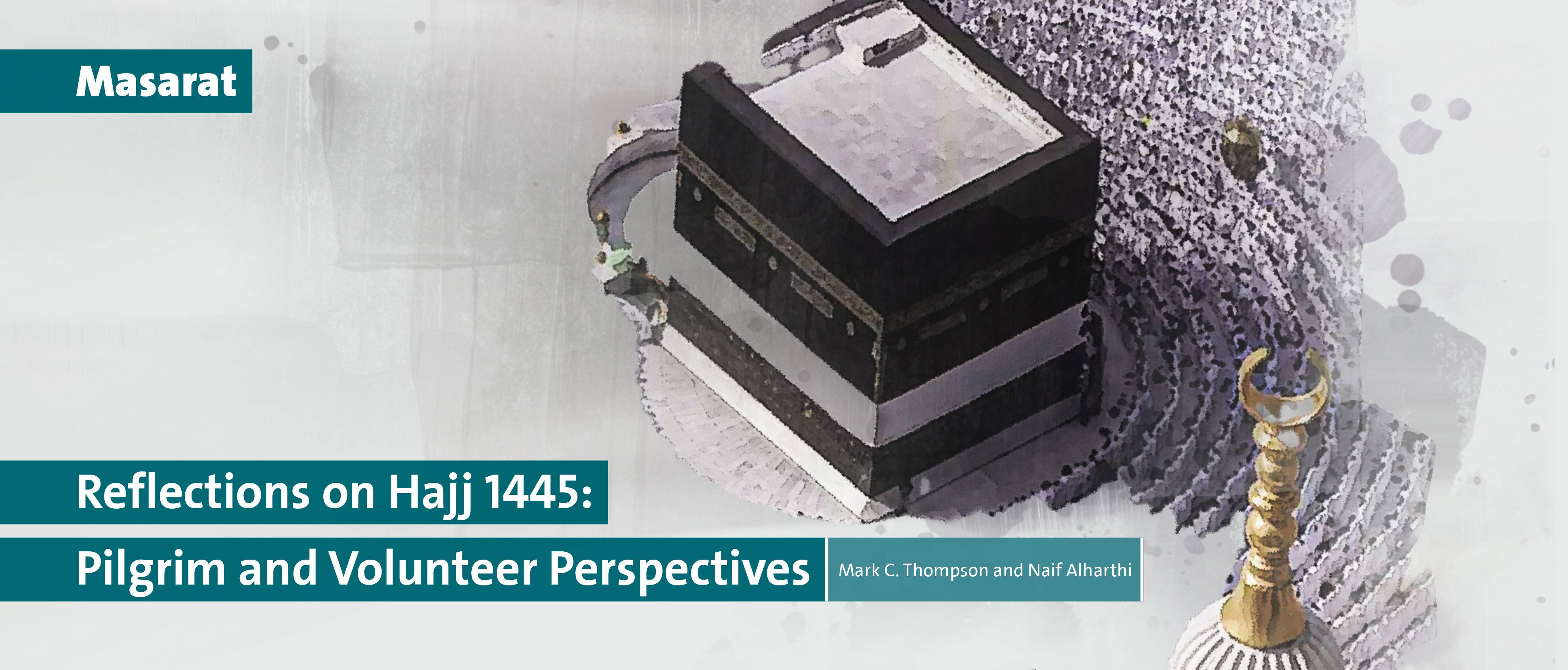Reflections on Hajj 1445: Pilgrim and Volunteer Perspectives
Hajj is the pilgrimage to the holy city of Makkah, which every adult Muslim must make at least once in his or her lifetime. A person who leaves their home for Hajj is considered to be in a state of pilgrimage until they return home and is thus considered a guest of Allah for the entire duration of their journey. Because it thus provides spiritual cleansing and mental rejuvenation, every Muslim wishes to participate in this journey. Completing the pilgrimage is often described as a profoundly transformational experience, or—to use the popular term—“the journey of a lifetime.” In truth, the significance, scale, and intensity of the Hajj cannot be overstated. It is a deeply “lived” spiritual and human experience that can be both physically and psychologically challenging for pilgrims, organizers, and volunteers. This paper considers the Hajj of 1445 (2024) from two personal but different viewpoints: those of a pilgrim and those of a volunteer. Our aim is to provide a flavor of the experience of Hajj 1445, from two people who were involved in it.

